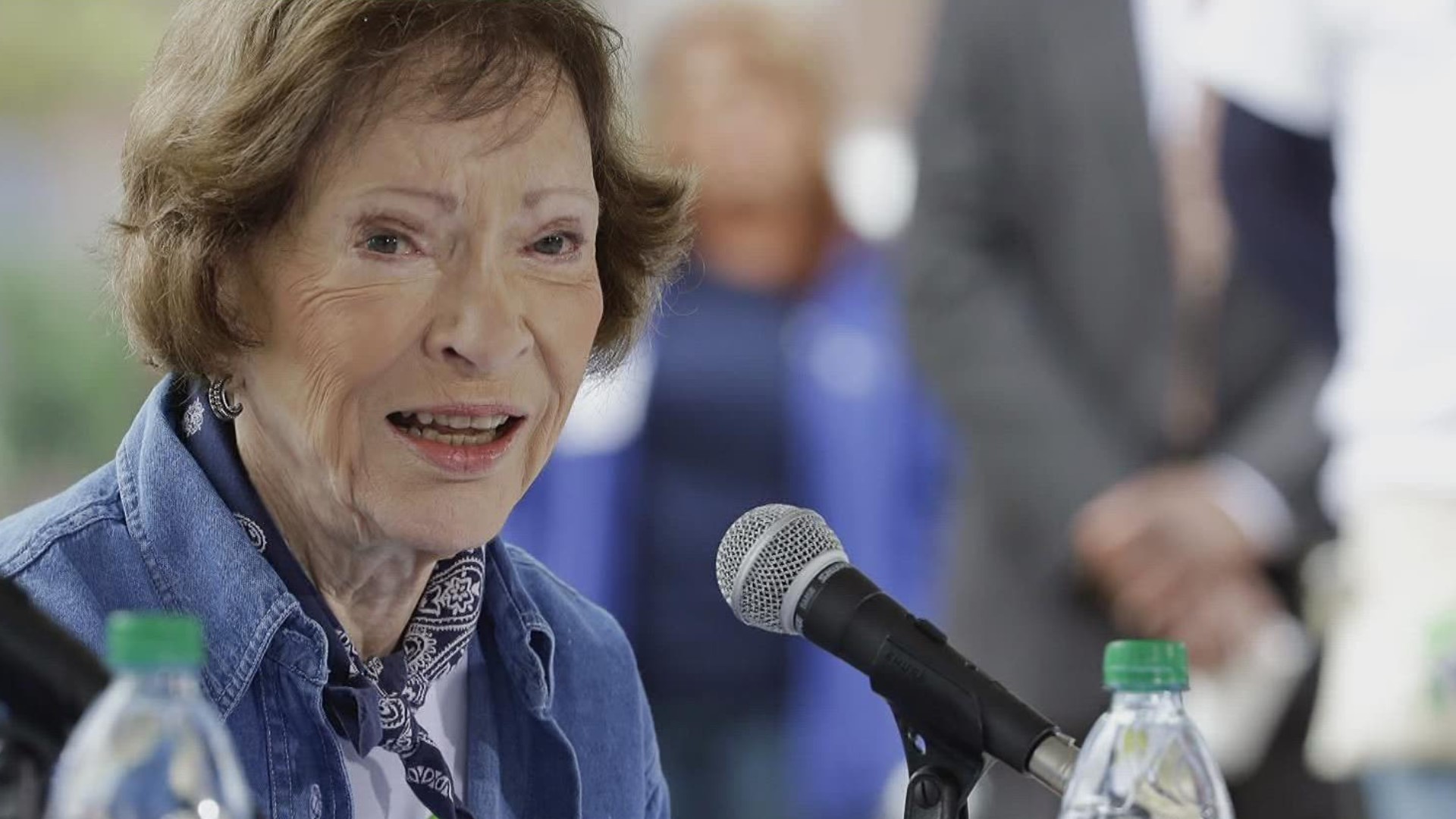ATLANTA — Following the news that former first lady Rosalynn Carter has been diagnosed with dementia, the Carter Center opened up a virtual card for people to share messages of peace and comfort.
Here's how to send a message to former First Lady Rosalynn Carter and the Carter family
The card is set up through Kudoboard on The Carter Center's website. People can add a message and include a photo, video or GIF.
More on the former first lady's diagnosis
The news came on Tuesday, and The Carter Center did not share specific information about Rosalynn's diagnosis. A family statement from the center only said that Rosalynn had been diagnosed with dementia and "continues to live happily at home with her husband," former President Jimmy Carter.
This announcement comes three months after Jimmy Carter entered home hospice care in Plains, Georgia.
Pointing to Rosalynn's long-standing focus on mental health advocacy, family members said they hoped to share her diagnosis would encourage conversations on dementia at kitchen tables and doctors' offices alike, countering stigma that could keep people from seeking help.
"As the founder of the Rosalynn Carter Institute for Caregivers, Mrs. Carter often noted that there are only four kinds of people in this world: those who have been caregivers, those who are currently caregivers, those who will be caregivers, and those who will need caregivers. The universality of caregiving is clear in our family, and we are experiencing the joy and the challenges of this journey," the statement said.
About Dementia
Dementia is a general term for the impaired ability to remember, think and make decisions, primarily affecting older adults. Causes of dementia vary — the CDC says as many as 80% of cases are caused by Alzheimer's disease, while other forms include vascular dementia and frontotemporal dementia.

